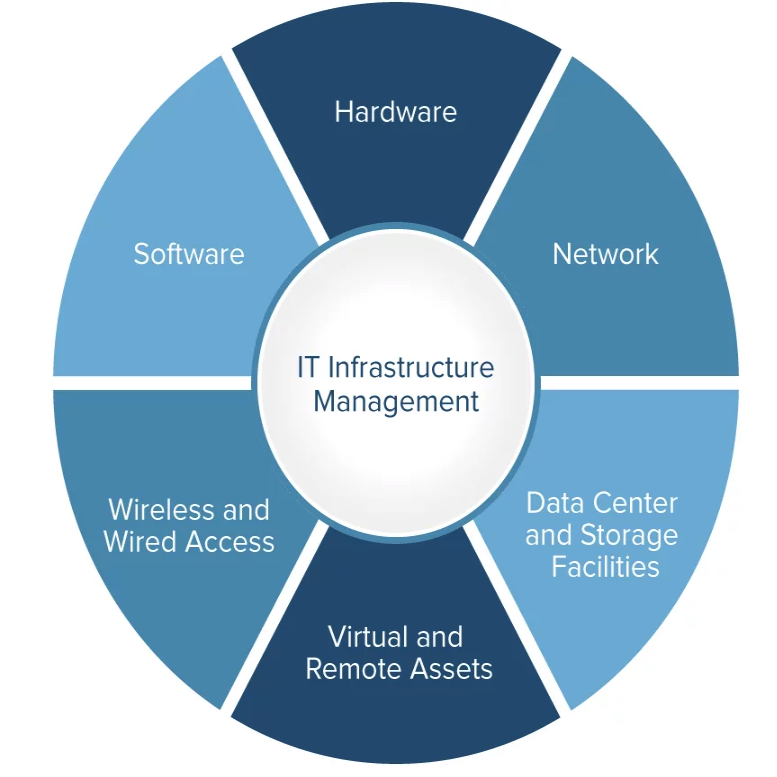Project management is something that every business could benefit from. It could be from little to big projects that you want to tackle. Project management for the IT industry is becoming more apparent. Keep reading to learn more about how IT Project Management is necessary.
Project Management comes in handy for a variety of reasons. One of these being in your IT projects. It helps knowing that your IT project will be taken care of by someone who has experience leading projects related to yours.
In IT, as technology has changed; it has become more complex and end-users are demanding greater ease of use and flexibility.
First, what exactly is IT project management? IT Project management is the process of planning, organizing and delegating responsibility of an organizations’ specific IT goals. These projects could range from overseeing projects for software development, hardware installations, network upgrades, cloud computing and virtualization rollouts, business analytics and data management projects, and implementing IT services. An IT project manager it is imperative that initiatives are completed on time and on budget.
In addition to the normal problems that can come up and can cause a project to fail, there are other factors that can affect the success of a projects. These can include:
- Advances in technology during the project
- Infrastructure changes impacting security and data management
- Unknown dependent relationships with hardware, software, network infrastructure, and data
- First time, first use from implementing a new technology for the first time
IT Project Management Lifecycle:
Managing a Project:
There are 5 steps that also go along with the project management lifecycle. These include:
- Initiation – the project goal, need or problem is identified.
- Planning – project manager and team work together to plan the needed steps for a successful project.
- Execution – the team executes the project plan to create the deliverables of the project.
- Monitoring and controlling – monitoring and controlling the work for time, cost, scope, quality, risk, and other factors of the project.
- Closing – happens when all the work is completed, approved, and transfers ownership.
Project Knowledge Areas:
The below knowledge areas segment different actions completed throughout the project:
- Scope management
- Schedule management
- Costs management
- Quality management
- Human resources management
- Communication management
- Risk management
- Procurement management
- Stakeholder management
- Integration management
What Else Is an IT Project Manager Responsible For?
| Planning and defining scope | Manage risks and issues |
| Planning and sequencing | Monitor and report progress |
| Resource planning | Team Leadership |
| Develop schedules | Strategic influencing |
| Estimate time | Business partnering |
| Estimate costs | Working with vendors |
| Develop budget | Scalability, interoperability, portability analysis |
| Documentation | Controlling quality |
| Create charts and schedules | Benefits realisation |
| Risk analysis |
Why Is Project Management Important?
Many businesses wonder if project management is really needed because on paper it looks like an unnecessary expense. But, the truth is running projects without good project management is a false economy. Below are a few reasons why Project Management is important for your company.
1. Strategic Management
Project management ensures what is being delivered, is right, and will deliver value.
2. Leadership
Project management brings leadership and direction to projects.
3. Clear Focus and Objectives
Project management makes sure that there’s a proper plan for executing on strategic goals.
4. Realistic Project Planning
Project management ensures that there are proper expectations set around what can be delivered, by when, and for how much.
5. Quality Control
Project management confirms that the quality of what is being delivered consistently hits the mark.
6. Risk Management
Project management makes sure that risks are properly managed and mitigated against to avoid becoming issues.
7. Orderly Process
Project management ensures that the right people do the right thing, at the right time. Also, makes sure that proper processes is followed throughout the project lifecycle.
8. Continuous Oversight
Project management looks at a project’s progress making sure it’s tracked and reported right.
9. Subject Matter Expertise
Project Management has someone who is able to understand if everyone is doing what they should be.
10. Managing and Learning from Success and Failure
Project Management learns from the successes and failures of the past.
We have come to the end of this blog post. We hope that you have learned more about the role of project management for your IT needs. Feel free to use the comment section below!
Request Your Complimentary Consultation!
Sources:
Aston, Ben. (2017). Why Is Project Management Important? Retrieved February 11, 2019 from, https://thedigitalprojectmanager.com/why-is-project-management-important/
Haughey, Duncan. (2018). The Role of the Project Manager. Retrieved February 11, 2019 from, https://www.projectsmart.co.uk/the-role-of-the-project-manager.php
Rouse, Margaret. (2015). IT project management. Retrieved February 11, 2019 from, https://searchcio.techtarget.com/definition/IT-project-management
Smartsheet. (2018). IT Project Management. Retrieved February 11, 2019 from, https://www.smartsheet.com/project-management-IT


